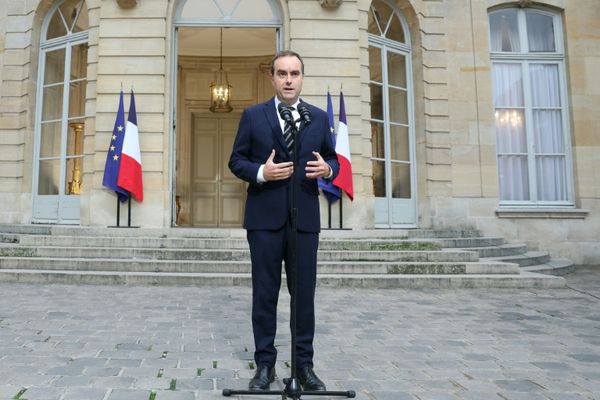
Munich airport has reopened after drone sightings over the facility on Thursday evening forced air traffic control to suspend operations, leading to the cancellation of 17 flights and disrupting travel for nearly 3,000 passengers in the German city on the eve of a national holiday.
A further 15 arriving flights were diverted to Stuttgart, Nuremberg, Vienna and Frankfurt, the airport said in a statement, marking the latest drone disruption to European aviation after sightings temporarily shut airports last week in Denmark and Norway.
German air traffic control officials restricted flight operations at Munich airport from late Thursday evening and then suspended them altogether because of several drone sightings, the airport added. Staff provided camp beds, blankets and food to some stranded passengers in the terminals while others were taken to hotels.
As operations resumed early on Friday morning, a witness told Reuters passengers were checking in for a flight to Varna in Bulgaria, and the departure board showed only a few flights had been cancelled. A flight from Bangkok was the first of the day to land at about 5.25 am (4.25am BST), according to the airport’s website.
Bild newspaper quoted a police spokesperson as saying that because the drones were seen at night it was too dark to determine their size and type.
The city was already on edge this week after its popular Oktoberfest was closed temporarily because of a bomb threat and the discovery of explosives in a residential building in the north of the city. Authorities later determined there was no political or religious motive behind the attack targeting the alleged perpetrator’s family.
After reported drone sightings over Munich Airport earlier this evening the airport remains closed until 0259 UTC this morning. 14 flights were diverted. https://t.co/CFDGoduFWa pic.twitter.com/b5hwFI4xVZ
— Flightradar24 (@flightradar24) October 3, 2025
The drone incident highlighted the vulnerability of critical European infrastructure and occurred before German Unity Day on Friday, a public holiday with increased travel because of the long weekend, and the final weekend of Oktoberfest.
Denmark has stopped short of saying who it believes is responsible for the mysterious drone flights in its airspace last week, which disrupted air traffic at airports, but European leaders have suggested it could be Russia.
The European Commission chief, Ursula Von der Leyen, said on Wednesday: “Russia tries to test us. But Russia also tries to sow division and anxiety in our societies.”
The Danish prime minister, Mette Frederiksen, said Europe was in its “most difficult and dangerous situation” since the end of the second world war, as she hosted EU leaders for talks on aiding Ukraine and firming up European defence projects intended to ensure the continent is ready to deter invaders by 2030.
At the meeting, leaders backed plans to bolster the bloc’s defences against Russian drones.
On Sunday, a German air defence frigate, FSG Hamburg, arrived in Copenhagen to contribute to “strengthening Denmark’s airspace surveillance” during the summits, Danish armed forces said.
The frigate is part of Nato’s Baltic Sentry mission, which the alliance said last weekend it intended to strengthen. A Nato spokesperson said there would be “even more enhanced vigilance” in the Baltic Sea region, including Denmark.
The Russian president, Vladimir Putin, joked on Thursday that he would no longer fly drones over Denmark, but Moscow has denied responsibility for the incidents.
Officials in Russia and its close ally Belarus acknowledged last month, however, that some drones used as part of Russia’s war in Ukraine had entered the territory of the EU and Nato member Poland, prompting a scramble by Polish and Nato allies in which fighter jets were deployed to shoot them down.
Ukraine’s president, Volodymyr Zelenskyy, told Europe on Thursday that the recent drone incursions showed Moscow aimed to “escalate” its aggression.
Jens Spahn, the parliamentary group leader of Germany’s co-ruling Christian Democrats, said after the disruption in Munich that Europe needed to immediately redouble its defence capabilities against drones.
“Instead of shooting at drones with fighter jets, we need an integrated and agile technological ecosystem that allows us to respond immediately,” he told the regional media group Bayern.
“We must establish a functioning drone defence system as quickly as possible,” he added. “Now, not in five years’ time.”
Reuters contributed to this report







